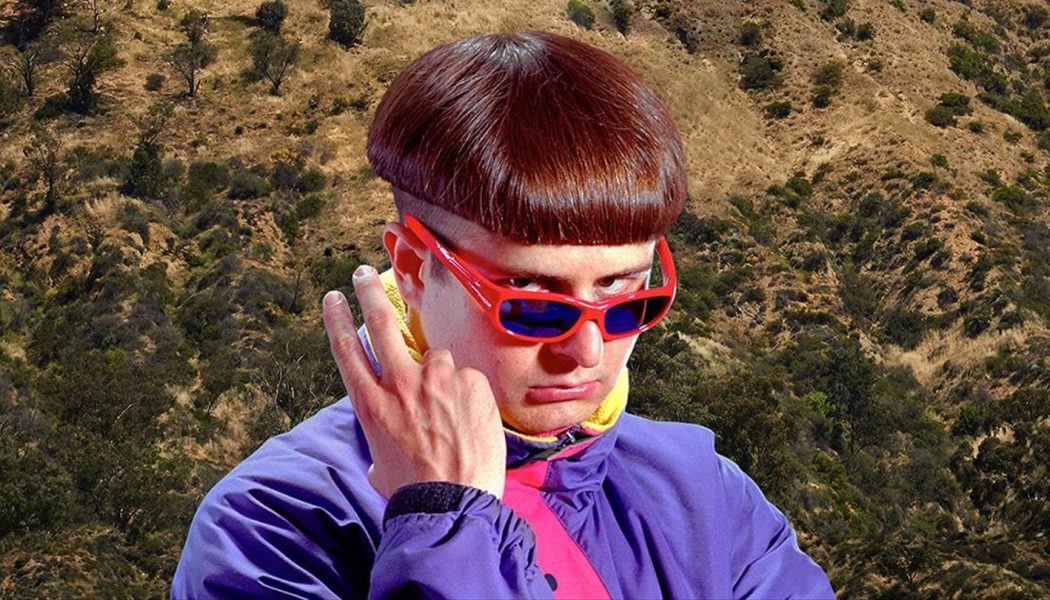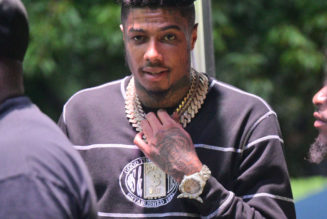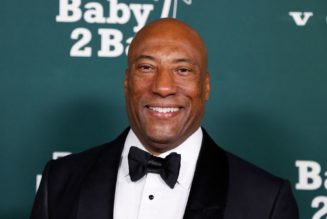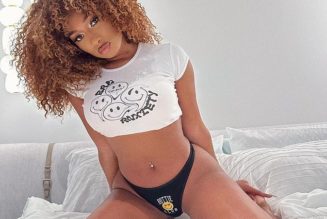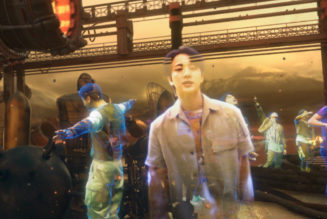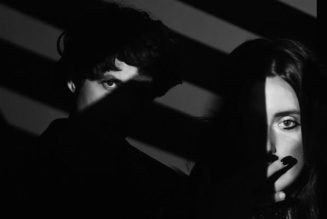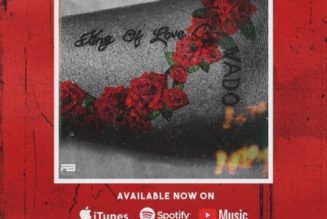
In late 1999, the pro wrestler Dustin Runnels was fed up with his employer, World Championship Wrestling. The ratings for its flagship program, WCW Monday Nitro, consistently sagged behind that of its competition, WWE, and in under two years, WWE would acquire the failing enterprise and absorb many of its superstars. But before then, WCW pulled out nearly every ploy in an attempt to reinvigorate itself to viewers — like letting Runnels trash the company on live television.
Clad in a long, leather trench coat and white face paint, Runnels entered the ring on Nitro to debut a new persona named “Seven,” but he quickly broke character to skewer his bosses. “They’ve dressed me up like Uncle Fester to play trick or treat all year long,” he said, seething. He bemoaned the lack of support from WCW’s talent heads. He aired out old grievances about past gimmicks. Notably for the scripted sports-entertainment sphere, he spoke from the heart: “You can take this silly-looking thing, Seven, and shove it up your ass.”
Though he didn’t do it intentionally, Oliver Tree placed Runnels’s monologue in my head when he told me recently that his debut album, Ugly Is Beautiful, signifies “the end of Oliver Tree as we know it.”
It’s a strange thing to say for an artist who’s ostensibly just getting started. It’s also quite possibly a bit of kayfabe — wrestling jargon for preserving the illusion that a wrestler is not portraying a character, but that they actually are the character. It’s what keeps wrestling storylines dramatic and what preserves their stakes, even when the outcomes are predetermined. Outside the ring, too, playing with kayfabe can be a canny bit of misdirection, like when Tree elaborated further on his declaration.
“I’m just ready to drop all the bullshit and just get to be the real guy, make the real art,” he said on a Zoom call with MTV News from inside a domineering plastic bubble. He was dressed in his typical uniform — signature bowl cut, his mother’s ski jacket, massive JNCO flares, red sunglasses — but he felt over it.
Tree, who’s cultivated a persona as the trickster laureate of pop’s viral era since 2016, spoke as if he was sick of the gimmick; he seemed weary of the online antics he documents on social media, like running around with flamethrowers, giving himself a “quarantine cut” with comically oversized scissors, and defiantly shattering a bong and declaring that “smoking weed’s for fools.” His trail of online misanthropy and past affiliation with content giant @FuckJerry makes sense, and his music videos, too, are often couched in bizarre pranks; the biggest one may be the 1.5 million followers he’s gained on social media.
But as he said on our call, that’s all apparently changing. Ugly Is Beautiful is finally out, freeing him up for a full-time career in filmmaking and away from music. “I’m excited to just go and step behind the camera and be focused in there. The only reason I’m in any of these videos is it’s the means to an end. It’s the only way I can get the funding to make this shit. So I’ve only been the puppet because that was the only way I could get the funding, but Oliver Tree is a puppet master. And so the truth is he is going to go into puppet-master phase. He’s going to be working and orchestrating from behind the curtain.”
It would be a bold pivot for an increasingly visible artist to abandon a viable music career, cash out, and enter the film world, but he sounded so sure. He called out his label, Atlantic Records, by name for lack of support. He lamented the mechanical churn of both touring and the industry. And I couldn’t help but think about how Runnels’s 1999 speech was actually an idea cooked up by — you guessed it — the very bosses he gladly railed against. His breaking of kayfabe was actually completely within the bounds of kayfabe.
Was Oliver Tree quitting music, or was he “quitting music?” Was the dude really sick of the bullshit, or was this a slick strategy to set the stage for an unexpected comeback somewhere down the line?
There’s precedent to wonder here. Tree had already announced his retirement and delayed the release of Ugly Is Beautiful in March, shortly after the coronavirus pandemic effectively shut the world down. In a note shared to social media, he announced his debut album was “cancelled due to COVID-19,” though he returned shortly after a staged kidnapping scheme which played out, naturally, across his own channels.
There’s also the fact that his latest tour was punctuated by him climbing into a coffin to announce a farewell, in a move cribbed directly from the superstars of sports entertainment yore. “Touring fucking sucks,” he told me. “I spent the last four years traveling around the world. No one cared. I’m broke. I got nothing to show for it. That was my final tour.”
His thoughts on his past EP releases weren’t much rosier. “The only reason that any of this music came out was because I was tricked by the label,” he said. “This Oliver Tree project is just an iteration of the ongoing 30 projects I’ve had through my life that all were tremendous failures.” But if our entire interview was him pulling a Runnels/Seven trip on me — with Uncle Fester’s bowl cut swapped in for white face paint — why did the music sound so damn convincing?
Ugly Is Beautiful is Tree’s mission statement, digging into the psyche of an outsider. On its fiery cover, his posture is that of a forgotten child waiting for a ride that’ll never come, and the balloon bouquet he holds gives it an air of menace — as does the inferno behind him. Stylistically, it’s both anachronistic (with shades of rap-rock and the Loudness War) and perfectly contemporary, specializing in the kind of fuzzy-edged music that Twenty One Pilots took supersonic in the 2010s.
But not to Tree. “One thing I want to make clear is that I don’t listen to music,” he said. “I don’t have any music heroes.”
Nevertheless, Ugly Is Beautiful‘s influences shine through. “Bury Me Alive” is built around reggae elements, for example, and finds Tree rapping. “Introspective” plays like a lower-BPM Blink-182 powered not by Travis Barker’s speed but unhurried trip-hop. His voice lingers in an upper register, not quite a whine but certainly designed for impact, not comfort. But it’s what he actually sings that just might offer insight into his actual, not kayfabe, perspective.
“Alien Boy” positions him as an outsider succeeding in spite of everyone else, and a song later, during “Joke’s on You!,” he’s admitting, “My whole life is just a joke / But I’m still not laughing.” And then there’s the self-deprecating “Jerk,” where he just comes out and says it: “I watch the walls cave in on me / I’m sick of feeling so fucking lonely.”
“I would consider myself an outcast for sure,” he said. “I feel like I’m in my own little world, just building my own little superhighway.” His filmmaking plans speak to that same kind of earnestness he seems eager to capture in his lyrics. He mentions having written screenplays for a thriller and a surrealist coming-of-age tale. Of course, he also credits unintentional meme originators Smash Mouth as musical inspirations, a fact perhaps informed by (or currently informing) his plans to release a forthcoming “meme bible” called Oliver Tree: How to Turn Yourself Into a Meme, an extension of the senior thesis he says he wrote at the California Institute of the Arts.
It’s obvious that Tree isn’t a traditional musician, nor is he poised to become a traditional filmmaker. Loud music and outrageous visuals, and apparently screenwriting, just happen to be his chosen media for creating a stir — for now. The wrestling universe, where matches are choreographed but the brunt and pain of the ring are still very real, is completely sustained by drama, as well as charisma. Nothing sells quite like toying with reality itself. And what comprises that reality? Whatever the person with the microphone tells us it is.
Even amid his own album rollout, Tree’s pinned tweet remains an all-caps apology for sucking on The Late Late Show in 2019: “MY DEBUT TV PERFORMANCE WAS A DISASTER. TO EVERYONE WHO STAYED UP TO WATCH, I’M SORRY I LET YOU DOWN!” That performance featured Tree in stilts hidden inside massive denim chutes that make his regular JNCOs look like skinny jeans. He wore a bald cap and bowl-cut wig over that, which — whoops! — fell off as he appeared to lip-synch. The spectacle was, of course, all part of the Oliver Tree mythos: presenting an alternative style to glossy, airbrushed pop stars; titling an album Ugly Is Beautiful and appearing in his grade-school uniform on the cover; saying fuck it, apparently, and walking away. Or not.
To cap his wrestling promo in 1999, Runnels looked squarely into the camera to deliver its most identifiably rehearsed portion: “Tonight and forevermore, you will never, ever forget the name of…” He paused for effect, but in that silent vacuum, audience members shouted the name of a past gimmick, one he explicitly said he was trying to leave behind. He aimed to be legitimized by trashing the pageantry of his past. In that brief moment, he couldn’t outrun it.
The message bombastically broadcast throughout Ugly Is Beautiful is that Oliver Tree feels like he doesn’t belong. “I am exploring arguably the most serious concept in arguably the most ridiculous way,” he told me in a moment that I keep returning to. It wasn’t kayfabe, even if was. His breaking of kayfabe was actually completely within the bounds of kayfabe.
This is the “final ending” of Oliver Tree. And now he’s just getting started.
